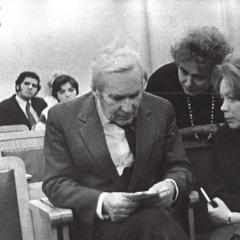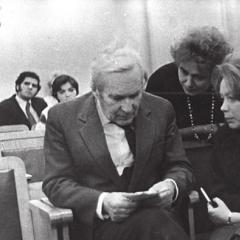Economics traditional presentation. Presentation of the traditional economic system. Types of economic systems
Lesson topic:
Types of economic systems

Lesson objectives:
- study types of economic systems;
- get acquainted with the main characteristics of economic systems;
- promote the formation of practical, independent, research activities students;
- contribute to the systematization of knowledge on the topic “Economic Systems”, relying on interdisciplinary connections.

Economic system
- This is a way of organizing the economic life of society to solve the issues facing it:
- What to produce?
- How to produce?
- For whom to produce?

Types of economic systems
- Traditional
- Market
- Mixed





Types of systems
Advantages
Traditional
Flaws
Command and administrative
Country names
Market
Mixed
Types of systems
Advantages
Flaws
Country names
Task 1. Fill out the table:
Backward technology
Manual labor Agricultural production
Vulnerability to external influences
Bangladesh, Afghanistan, Pakistan, Azerbaijan
Craftsmanship is passed on from generation to generation; Stability and predictability of society
Traditional
Some goods are more than needed, others are less (oversupply - shortage); backwardness of technical development. Everything depends on agriculture and foreign trade. State planning.
Cuba, Vietnam, North Korea
Stability of society, economy, possibility of rapid distribution and redistribution of resources
Command and administrative
Greater freedom of choice for producers and consumers. Introduction of advanced technologies. High quality products.
There is a big difference in the incomes of citizens, in the standard of living Problems: unemployment, paid services
Market
Germany, USA, Japan, UK
Manufacturers decide for themselves what to produce, and buyers decide what and in what quantity to buy. A large number of industries have been developed. Trade connections are extensive. High production growth.
The state can undermine the normal
the functioning of the market structure if it interferes too much with market laws.
Russia, Hungary, Bulgaria, Poland
Mixed

Conclusion
We live with you in an age of competition, the market, and we understand perfectly well that the main thing for all countries, and especially for Russia, is to find its place in this world, to develop better and better.

Reflection
- - I was surprised...
- - I learned…
- - Now I can
- - I remembered…
- - I didn't understand
By clicking on the "Download archive" button, you will download the file you need completely free of charge.
Before downloading this file, remember those good essays, tests, term papers, theses, articles and other documents that lie unclaimed on your computer. This is your work, it should participate in the development of society and benefit people. Find these works and submit them to the knowledge base.
We and all students, graduate students, young scientists who use the knowledge base in their studies and work will be very grateful to you.
To download an archive with a document, enter a five-digit number in the field below and click the "Download archive" button
Similar documents
Economic systems as forms of organization of the economic life of society, differing in the method of coordination economic activity people, firms and states and the type of ownership of economic resources. Their types: traditional, market, team.
test, added 04/20/2016
The essence of economic systems. Types and models of economic systems. Elements of the economic system. Market economy of free competition. Modern market economy. Traditional economic system. Models within systems.
test, added 12/11/2006
Economic strategy states. Types of economic systems. Market economy of free competition (pure capitalism). Modern market economy (modern capitalism). Traditional economic system. Administrative command system.
abstract, added 06/03/2010
Types of economic systems. Traditional system. Administrative command system. Market system. Freedom of economic initiative. Mixed economic system. Main models developed countries: Swedish, American, Japanese, German.
test, added 07/28/2008
Approaches to the classification of economic systems. Market economy of free competition, administrative-command, transitional and traditional economies, their distinctive features. American, Swedish and Japanese models of economic systems.
presentation, added 11/13/2017
Economic system in different scientific schools. Comparative study of the mechanism of functioning of different economic systems. Relationship between plan and market (allocation of resources). Types of systems: modern, traditional, planned and mixed (hybrid).
course work, added 12/25/2014
An economic system as a set of relations regarding the production, distribution, exchange and consumption of material goods. Economic systems, solving the main problems of the economy. Market, command economic, mixed, traditional systems.
test, added 11/17/2009
To use presentation previews, create a Google account and log in to it: https://accounts.google.com
Slide captions:
The concept of economic systems. Traditional system. Market system.
Plan: Concept of economic systems. Types of economic systems. Traditional economic system. Market economic system.
The concept of economic systems. Types of economic systems. Economic systems are forms of organizing the economic life of society, differing in: The method of coordinating the economic activities of people, firms, states; Type of ownership of economic resources.
The difference between them lies in how society seeks answers to the main economic issues: What to produce? How to produce? For whom to produce?
Types of economic systems: Traditional; Market; Team; Mixed.
Traditional economic system is a way of organizing economic life, in which land and capital are held in common by the tribe and limited resources are distributed according to long-standing traditions.
The traditional economic system is typical for countries such as? Ancient Rome; Ancient Greece; And for the feudal states of medieval Europe. In Russia, to this day one can find elements of a traditional economic system in the organization of life of the peoples of the North.
Ownership of economic resources in the traditional economic system was collective: Arable lands; Land; Meadows belonging to one tribe.
Over time, the traditional economic system: Has ceased to be the basis for organizing people’s lives in most countries of the world; Its elements have faded into the background; It has been preserved only in fragments in the form of different traditions and customs.
Market economic system This is a way of organizing economic life in which land and capital are owned by individuals, and limited resources are distributed according to the laws of the market.
Basis of a market economic system: Private property rights; Economic freedom; Competition.
Private property rights are the recognized and legally protected right of an individual to own a particular type of scarce resource. Owning capital and generating income on this basis gives the market system its second name - capitalism.
Economic freedom The right of each owner of productive resources to independently decide how to use them to generate income. Markets for production factors and goods: Determine the degree of success of a particular economic initiative; They form the amount of income that the property brings to its owners; They dictate the proportions of distribution of limited resources between alternative areas of their use.
The advantage of the market mechanism is to force the seller to think about the interests of the buyer in order to achieve benefits for himself
Competition Economic rivalry to obtain a larger share of a particular type of scarce resource. Markets based on competition have become the most successful way to distribute limited productive resources and the benefits created with their help.
The advantage of competition is that it makes the distribution of limited resources dependent on the weight of the economic arguments of the competitors.
The market system has the disadvantage of: It creates huge differences in levels of income and wealth. These differences encouraged people to interpret capitalism as an unjust economic system and to dream of a more perfect way of life. All dreams led to a movement called Marxism (named after the German journalist K. Marx)
Marxists argued: The market system has exhausted itself; The market system has become a brake on development; The market system needs to be replaced new system– socialism.
Thank you for your attention. The presentation was prepared by an economics teacher - MBOU Secondary School No. 5, Kashin Danilchuk Anzhelika Aleksandrovna
Typical testsAre the following statements about limited resources true?
A. Economic activity occurs in conditions
limited resources.
B. Society strives to find optimal ways of distribution and
use of limited resources.
1) only A is correct
2) only B is correct
3) both judgments are correct
4) both judgments are incorrect
factor of production, and write down the numbers under which they
indicated.
1) cash
2) a plot of arable land
3) oil deposits
4) machines and equipment
5) forest
6) buildings, structures Are the following statements about economics true?
A. Economic science studies economic activities
of people.
B. Economics studies only modern society.
1) only A is true; 3) both judgments are correct
2) only B is true; 4) both judgments are incorrect BAVB "Limitation - insufficiency
volume of available __________(A)
all types for the production of
the amount of goods that people would like
get. Limited labor
is due to the fact that the number __________(B)
residents of any country strictly
fixed at any time
time. In addition, according to their
__________(B), available skills
only a portion of citizens are suitable for
performing specific types of work.
These restrictions can be relaxed
for example, by invitation
workers from abroad or
retraining and training
workers according to the most
__________(G). But all this is needed
time, but instantaneous expansion
workforce framework to achieve
impossible. Limited land
(natural resources) is determined
__________(D) country and the presence in it
mineral deposits
fossils. Limited capital
determined by previous development
country, what __________(E) it is
I managed to save up." 5 7 2 6 3 4
List of terms:
1. trade
2. abilities
3. geography
4. production potential
5. resources
6. specialties in short supply
7. able-bodied
8. education system
9. demographic
Economic systems Traditional system (p. 32, def.)
1. Types of economic systems
Economic system is a form of economic organizationlife, differing in
1. The method of coordinating the economic activities of people,
firms and states
2. Type of ownership of economic resources
2. Features of the traditional system
The question “what to produce?” decides onbased on tradition
Collective ownership
Dominance of subsistence farming
Predominance manual labor
Underdevelopment of exchange
Lack of technological progress
Economic systems Command economy (p. 36, def.)
Signs
1. Predominance of the stateproperty
2. Central planning
economics and distribution
resources and products
3. Setting fixed prices
4. Lack of material
producers' interest
and competition
Page 36 - read
What are the advantages and disadvantages of a command economy?
DZ – par. 3, 5
Make notes-blank argumentsS.Yu. Witte - the role of a statesman in economic
reforms
The “Great Depression” - exit from the VD - an example of the role of the individual in
economy
Definitions from paragraphs
A traditional or patriarchal economy is an economic system in which traditions and customs determine the practice of using limited resources. a way of organizing economic life in which land and capital are held in common by the tribe and scarce resources are distributed according to long-standing traditions.

In a traditional economy, LAND AND CAPITAL ARE COMMONLY OWNED, AND THE MAIN ECONOMIC PROBLEMS OF SOCIETY WHAT, HOW AND FOR WHOM TO PRODUCE ARE SOLVED MAINLY ON THE BASE OF TRADITIONAL TRIM OR SEMI-FEUDAL HIERARCHICAL RELATIONS BETWEEN PEOPLE MI The traditional economy is characterized by subsistence farming. Farming Hunting Gathering





Summarize! Pros: Land and capital are jointly owned. Continuity and adherence to traditions are valued Subsistence farming dominates Disadvantages: Underdeveloped exchange Lack of technical progress Weak production potential Limited material goods produced





